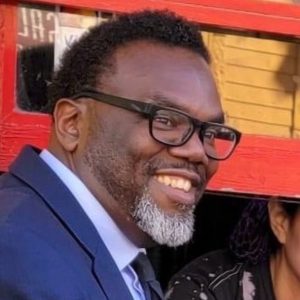“Nothing about us, without us!”
This is what members of the Disability Rights Action Coalition for Housing chanted during their press conference Wednesday morning at City Hall.
Coalition members want Chicago’s City Council and Mayor Rahm Emanuel to revise the Affordable Requirements Ordinance (ARO), which right now requires just 5 percent of affordable housing to be accessible for those with disabilities.
During Wednesday’s press conference, coalition member Cecelia Black said 15 percent of all Chicago residents living at or below the federal poverty line have a disability, far more than the number of affordable, accessible housing units the city requires.
Because of the lack of affordable, accessible housing available, those with disabilities are forced to either live in nursing homes or struggle.

Coalition member Damika Bennett has spent her entire 27 years living with a disability that has left her unable to walk.
In order for Bennett to leave her fifth-floor apartment, her mother must carry her up and down the building’s stairs, a difficult trip that often leaves Bennett confined at home.
“I don’t want to feel like a prisoner in my own home,” Bennett said. “I feel like every housing should be wheelchair accessible. I really would like to be independent, and I don’t want no body to take that away from me.”
As of now, the city ordinance mandates developers to set aside 10 percent of residential units as affordable or they can donate $100,000 per required unit to the city’s Affordable Housing Opportunity Fund.
Coalition members want to change that and with the support of Ald. Scott Waguespack (32nd), Ald. Bob Fioretti (2nd) and Ald. John Arena (45th), are asking for the fees to be raised according to income areas.
This would mean housing developers in downtown zoning districts would pay $250,000 in fees, high to medium income areas would pay $200,000 and medium to low income areas would pay between $100,000 and $50,000 – making it more appealing to develop in medium to low income areas.
The proposal would also require 20 percent of affordable housing to be accessible for those with disabilities.
Brock Grosso, community development and housing policy organizer at Access Living, said advocates would also like to see a portion of the fees collected go to a city-wide home modification fund.
This fund would be available for people with disabilities who need a door widened or a ramp, things they need but often can’t afford to pay for.
“We are not invisible, we are here, we have our own vision for what this community could look like,” Grosso said. “If you all are going to talk about us, we want to be at the table because we have a vision and we have a plan.”
Mayor Emanuel is working with an ARO task force made up of 23 members, including 11 alderman from the 4th, 7th, 8th, 16th, 27th, 29th, 30th, 33rd, 37th, 46th and 47th wards.
While an ordinance has yet to be introduced, the recommendations for revision from Emanuel and the ARO task force will be released in late November.






Be First to Comment